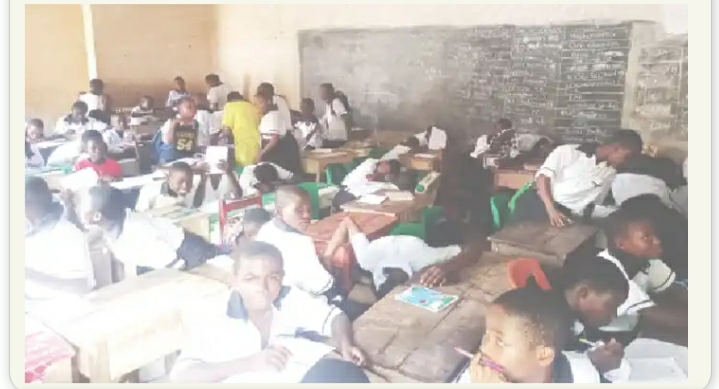50% Of Pupils In Enugu State Cannot Read – SSG
Prof. Chidiebere Onyia, the Secretary to the Enugu State Government (SSG), has revealed that half of the pupils in the state are unable to read in English or do simple maths problems.
He made this revelation while giving a keynote speech on “Smart Basic Education and the Future of Africa” at the four-yearly reunion of the Old Boys Association of Union Secondary School, Awkunanaw, on Thursday in Enugu.
He said that the government found out this problem in its Baseline Assessment of primary schools in the state, which was done in November 2023.
He said: “We were shocked by our findings. After six years of primary school, half of our children cannot read a single word in English and those who can read have difficulty with understanding.
“Half of our children cannot do simple subtraction tasks. What we saw in Enugu State is a reflection of our nation”.
He lamented that in Nigeria, 75% of children who finished basic education do not have numeracy and literacy skills.
He said that the World Bank, UNICEF, and UNESCO have called this ‘the Nigerian Learning Crisis’.
He added: “Besides this, our children face a “Skills Gap” because the current ways of teaching do not give children scientific, technological, productive, and digital skills”.
The SSG, however, said that the state government has changed its education policy to include bio-digital technology that would boost industrial development.
He said that this would be done by introducing new technologies in education, especially at the basic education level.
He said that Gov. Peter Mbah has taken conscious steps to improve the education system to suit the changing global needs.
The SSG assured that the government was tackling the challenges with well-planned radical policy changes.
He said that this involved the introduction of a smart school model in all the 260 electoral wards in the state, which had new facilities such as centres for artificial intelligence and robotics, and interactive smart boards among others.
The SSG said that the academic curriculum would now focus on experiential learning methods, problem-solving and case studies.
He said that the changes would not only give students new technological skills but also allow them to compete with their global counterparts.
He said: “In Enugu State, we now think that besides providing regular training and professional development to teachers within the school systems, we must also change how teachers teach, as well as how students learn.”



